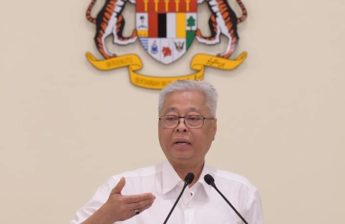KUALA LUMPUR, Nov 17 — The Ministry of Science, Technology and Innovation (Mosti) is utilising local and international partnerships to initiate technology transfer in the production of local human vaccines, Chang Lih Kang said.
The Mosti minister, who is also Tanjong Malim MP, held that via such partnerships, vaccines do not have to be created in Malaysia right from the beginning.
“This is the motive of the government – we’ll work together between local partners and international partners. It will also involve technology transfer where we don’t have to start from scratch,” said Chang during his winding-up speech at the committee-level debate on the ministry’s Supply Bill 2024 in Parliament yesterday.
Chang was responding to Kuala Selangor MP Dzulkefly Ahmad’s reminder that Malaysia, in the formation of its vaccine ecosystem, need not “reinvent the wheel” when it comes to vaccine production.
The former health minister proposed that the country “piggyback” on existing vaccine technology through smart partnerships, so that the nation does not create an ecosystem that is too taxing in terms of the cost and capital outlay.
Malaysia has yet to produce human vaccines. During the Covid-19 pandemic, local pharmaceutical company Pharmaniaga Berhad was only responsible for fill-and-finish for vaccines from China.
Chang informed the Dewan Rakyat yesterday that Mosti is working to strengthen the national vaccine ecosystem to ensure that Malaysia is prepared to face future pandemic threats.
“Vaccine development is complex, high risk, and takes about 10 to 15 years to produce a type of vaccine. The cost to produce vaccines with the use of the latest technology is high, and to realise this aspiration requires high commitment from various parties.
“At this time, Mosti is in the works to strengthen the national vaccine ecosystem, including through the strengthening of the network of strategic cooperation between industry agencies and international agencies.”
The Pakatan Harapan lawmaker held that through the Malaysia Genome and Vaccine Institute (MGVI), Mosti can ensure that cooperation involves local pharmaceutical companies, such as Pharmaniaga, Malaysian Vaccines and Pharmaceuticals Sdn Bhd (MVP) and Solution Biologics Sdn Bhd.
Chang informed Parliament that discussions with the industry were held last Wednesday to ensure that relevant training on the production of human vaccines involves industry.
“This is because the provision of manufacturing capacity is an important element to ensure the nation’s hope to fully produce human vaccines in the country can be realised.
“The relationship with the industry also provides a platform for pre-scientists at MGVI, NIBM to get direct training from global vaccine producers, such as CanSino (Biologics Inc) China.”
Budget 2024 proposed an allocation of RM510 million for research and development (R&D) funds under Mosti and the Higher Education Ministry.








